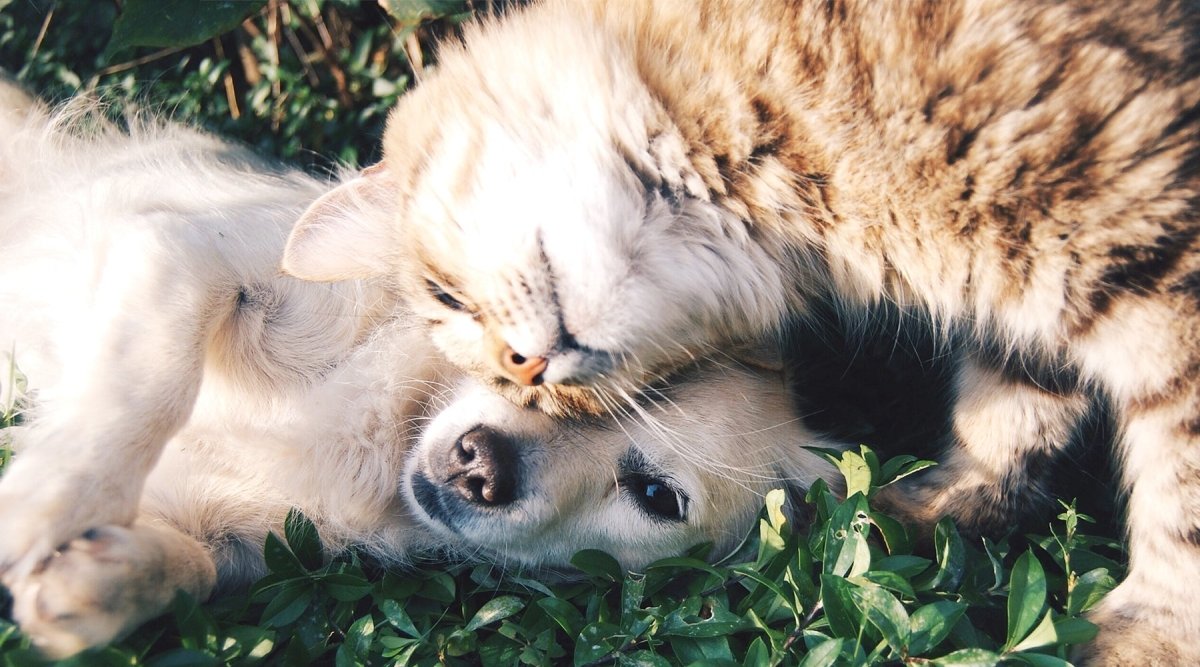Do you know what it's like when your dog has a cough? Many dogs get it in winter: kennel cough is a widespread infection of the upper respiratory tract, and it's also contagious! In the fourth part of our "Fit through the winter" series, I explain how you can protect your dog from coughs and treat them - as naturally as possible.
How do you recognize kennel cough?
My phone has been ringing off the hook over the last week. Many of you called to report that your four-legged friend was suffering from a severe cough. Zoa, an English Setter bitch, was one of them. It started with a barking cough - dry and hard. She vomited, had an elevated temperature, was weak and tired - the classic symptoms of kennel cough.
Kennel cough is a contagious infectious disease in dogs caused by viruses and bacteria. The trachea and bronchi are affected.
Possible symptoms:
- Severe coughing and wheezing
- Coughing worsens at night or when pressure is applied to the windpipe (e.g. when walking on a lead)
- Barking with retching, snot and sometimes vomiting
- Watery drops on the warm nose
- Partial fever
- No appetite, weak and exhausted
Although the disease is called "kennel cough", dogs are by no means only infected in animal shelters, boarding kennels or kennel facilities. Infection is possible wherever many dogs come together and bacteria and viruses can be easily transmitted from dog to dog.
A few days to a month can pass between infection and the onset of the first symptoms. Dogs under stress, very young dogs whose immune system is still developing or older dogs are particularly affected. A possible, albeit rather rare, complication of kennel cough in dogs is pneumonia. As dogs with a good immune system do not usually become infected, it is particularly important in winter, when the risk of infection is particularly high, that you strengthen your dog's own immune system.
Natural tips for the treatment & prevention of kennel cough
1. strengthen the immune system
Propolis is a resinous substance produced by bees that has an antibiotic effect and is ideal for supporting and strengthening your dog's immune system. It offers your dog protection against flu-like infections and is effective against bacteria, viruses and fungi. It is also known as a natural antibiotic.
Rosehip powder dog, with its naturally high vitamin C content, also helps to strengthen the immune system. Vitamin C can also help to keep blood vessels healthy by supporting the stability of red blood cells in animals.
2. provide rest & warmth
Just like us humans, our animals also need rest and warmth when they have a cold. A dog coat is recommended to keep out moisture, damp and cold - especially in the first few days. There are now also loops for dogs that keep their necks warm. After every walk in wet conditions, you should dry your dog thoroughly and then provide him with a warm place to rest.
3. the right amount of exercise
Rest is important, but the right amount of exercise and fresh air is also good for your four-legged friend. Going for a walk stimulates the circulation and lymphatic system, which helps to eliminate waste products and toxins. The respiratory tract receives oxygen and the immune system is strengthened.
4. drink more
The dry air in heated rooms in particular makes it easy for pathogens to spread during the cold season. The mucous membranes in the nose and throat dry out more quickly, making it easier for viruses and bacteria to spread. Therefore, make sure that your four-legged friend drinks enough, especially in winter.
5. cough syrup for dogs - natural remedies for irritated bronchial tubes
Herbs such as sage, thyme, licorice root and ribwort plantain offer valuable help for irritated throats and bronchial tubes, and not just for us humans. Mix the dried herbs with hot water to make a brew, leave to infuse and then pass through a sieve. Add a little honey to the herbal tea and the cough syrup for dogs is ready.
Case study: Dog Zoa
The owner of the English Setter bitch Zoa mentioned at the beginning gave her pet a cough syrup for dogs made from cough herbal tea and a little manuka honey.
After regular, short walks, Zoa was allowed to snuggle up to her owner in a warm blanket. Zoa was given propolis and rosehip mixed into her food to strengthen her immune system. After four days, she was already feeling much better.
What to do if your dog has a cough? What are your experiences with kennel cough? How do you help your four-legged friend get through the winter in good health? Tell us about it in the comments and share the article with other dog owners who want to strengthen their pet's immune system in a natural way.




